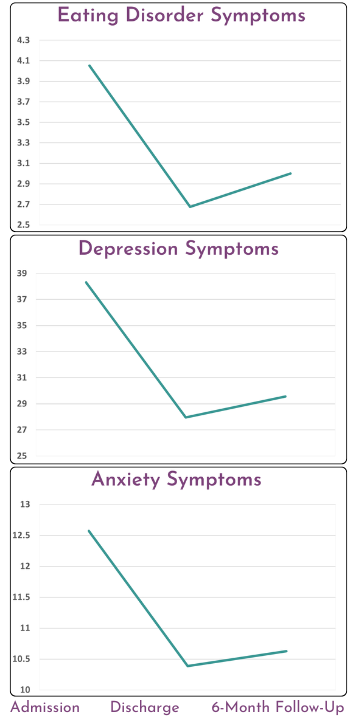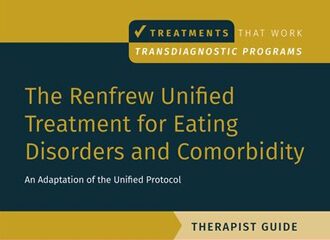In 2025, The Renfrew Center’s Research Department collaborated with researchers at Florida Atlantic University and Nova Southeastern University to publish “Long-Term Effects of the Unified Treatment Model for Eating Disorders and Comorbidity with BIPOC Clients” in Counseling Outcome Research and Evaluation, a peer-reviewed journal of the Association for Assessment and Research in Counseling (AARC).
Study Overview
Renfrew’s published patient outcome research addresses:
-
A critical gap in eating disorder research, as BIPOC individuals are just as likely to develop eating disorders as White individuals but are half as likely to receive treatment.
-
The extent to which the Unified Treatment Model (UTM) impacts eating disorder symptomatology, depression, and anxiety among BIPOC patients in residential treatment.
-
Data collected from 470 BIPOC patients who received residential treatment using the UTM between 2016–2023, assessed at three time points: admission, discharge, and six-month follow-up.
Key Findings
-
-
Eating disorder symptoms decreased by 34% from admission to discharge and remained 26% lower six months later.
-
Depression symptoms decreased by 27%, with sustained improvement at follow-up.
-
Anxiety symptoms decreased by 17%, showing continued stability over time.
-
These outcomes were measured using validated clinical tools the Eating Disorder Examination Questionnaire (EDE-Q), the Center for Epidemiologic Studies Depression Scale (CES-D), and the Overall Anxiety Severity and Impairment Scale (OASIS).
Results highlight that patients not only make significant progress during treatment but also continue to experience meaningful recovery and emotional well-being long after discharge.
Why This Matters
BIPOC individuals are just as likely as White individuals to experience eating disorders yet are about half as likely to receive treatment. This disparity represents a critical gap in mental health care.
Renfrew’s findings show that the Unified Treatment Model (UTM) produces strong and sustained improvements in eating disorder symptoms, depression, and anxiety among BIPOC patients in residential treatment. Importantly, the study demonstrates that the UTM delivers comparable outcomes across racial groups, underscoring its effectiveness as an inclusive, evidence-based approach to eating disorder treatment.




